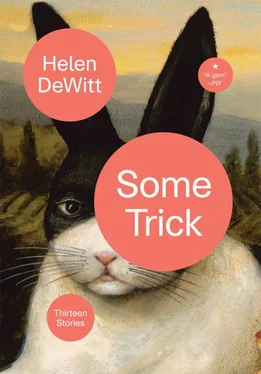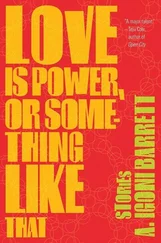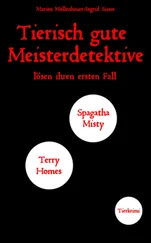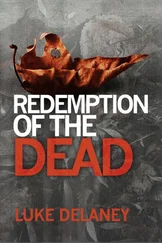‘Oh ho!’ says X. ‘ La mort de l’auteur c’est la naissance du lecteur . Happy birthday Bozzy.’
‘The author really is like God,’ say I. ‘Dead? Not dead? Opinion is divided. The Barthesian texts, meanwhile, are like the witty, iconoclastic works of Hume and Voltaire. You remember, in “ La mort de l’auteur ”? Refusing to assign a single sense to a text releases activity which is “ contre-théologique, proprement révolutionnaire, car refuser d’arrêter le sens, c’est finalement refuser Dieu et ses hypostases, la raison, la science, la loi .” Boswell would have gone to the deathbed of Barthes.’
‘The author can’t die yet,’ says X. ‘ S’il n’y avait pas d’auteur, il aurait fallu l’inventer — capitalism requires the existence of someone to pick up the cheque.’
‘I know what Barthes would have said to Boswell,’ say I. ‘ On n’a donc rien écrit? ’ I am proud of the ‘ on ’, and wait for applause. Then it occurs to me that this is cheating. I have wilfully revived the author, or rather ‘ l’auteur ’, constructing ‘characteristic’ remarks to be uttered by the collector of royalties in extremis. I could have said this at dinner. X will have something to say about it.
‘Oh, you!’ says X. X kisses me. ‘Let’s go upstairs,’ says X.
There is a text which I could insert at this point which begins ‘I’m not in the mood,’ but the reader who has had occasion to consult it will know that, though open to many variations, there is one form which is, as Voltaire would say, potius optandum quam probandum , and that is the one which runs ‘I’m not in the mood,’ ‘Oh, OK.’ My own experience has shown this to be a text particularly susceptible to discursive and recursive operations, one which circles back on itself through several iterations and recapitulations, one which ends pretty invariably in ‘Oh, OK,’ but only about half the time as the contribution of my co-scripteur. I think for a moment about giving the thing a whirl, but finally settle on the curtailed version which leaves out ‘I’m not in the mood’ and goes directly to ‘Oh, OK.’ X and I go upstairs.
X and I sit on the bed. The subtext is suddenly too much with us, and it is clear it will soon push us into what is not spoken. X begins to move oddly: a hand traverses space but makes no gesture. X’s movements, my movements must become the thing meant; X cannot approach this. The words have slipped away, the distance between signifier and signified is no doubt not very great — but the threshold of silence is daunting. X begins to talk about construction and deconstruction of gender, and succeeds again in ‘placing a hand on my knee.’ ‘What is woman?’ says X. ‘Is this the mark of woman?’ X puts a hand on my breast, cannily pursuing sous-texte sous prétexte.
X talks about clothes, which gesture at the difference they conceal. Or don’t. X begins to undress. Each signifier, says X, signifies a further signifier. Each difference is meant and meaning. Difference gestures beyond itself. I begin to undress. X is talking very fast while unfastening all fastenings: buttons fly from holes, zips unzip, clothes fly from skin to the floor. My clothes fall to my feet. And X, who has been taking this road very fast, goes into a skid on the slippage of meaning and smashes up against silence. It is as if we have accidentally removed, with our clothes, all signs of desire and desirability, as if we have sloughed off tits cunt prick with bra skirt trousers and find ourselves, stripped of language, indifferent featherless bipeds, trying to put it all back — but we are to each other as pale and lumpish and uninteresting as Cranach’s Adam and Eve. We catch each other’s eyes, after all we always understand each other.
‘Blue, not-blue,’ say I.
X shows a flicker of interest at the Edenic language: his cock lifts its head.
‘Blue and not-blue,’ he replies. He thinks a moment. He holds up crossed fingers. ‘ Bleu ,’ he says grinning. He pulls me over onto the bed, and starts kissing my breast.
We plunge at last into silence. No. Silenced, beneath X, my text goes sous-texte and presents the question: is it then the physical which makes sense of my story? Is it here that you find the array of possible meanings contracted — does this compel you to take things a certain way? Must X be a man? It seems inescapable to me.
It is as if I am lying on the bottom of a lake looking up through clear water at the sky: I see ripples across the surface at the meeting of water and air. I wonder how this looks to X. X sees, perhaps, a single body of water across which Hume, the scratch wig, that pleasing notion immortality skim and skitter like watermen. I close my eyes. I see a vast slate-coloured ocean with an immense and wrinkled skin.
I think of one of the fragments d’un discours amoureux . ‘This cannot go on.’ I think: ‘This could go on all night.’
I open my eyes. X rolls over on his back. He begins to sing softly:
‘Well it ainno use ta sit an wonder hwhy babe, iffen you dont know by now. An it ainno use ta sit an wonder hwhy babe. It’ll never do somehow.’ X likes songs that hug the vernacular. He dwells on whatever is most untranslatable to pen and paper, whatever written language can only hint at, what written language must be distorted even to acknowledge: hoarseness — nasality — drawing out of syllables — chromatic scales through the diphthongs. X does not, of course, admit that anything could be irredeemably unwritable, his position is that all these marks of the spoken are repeatable and therefore written. But X cannot sing and state his position at the same time. Singing, X indulges in illicit joys — he will restate the position after the song.
‘Well it ainno use in turnin on yer light babe. The light i — never knowed. An it ainno use in turnin on yer light babe. i’m on the dark side of the road.’ X catches my eye. ‘Well i wish there was sumpn you would — do er say — Ta tryen make me change m’minden stay — We never did teuu much talkin anyway — But don think twice its all right.’
X likes songs that gesture at inarticulacy. He is drawn to the poignancy of a world in which the unspoken is two-thirds of the iceberg. He is drawn to lovers who take things for granted. There are lovers, says the song, who do not include in their writing of la situation amoureuse the texts which play around the theme ‘I’m not in the mood’ — that must pare down discourse quite considerably. I myself am strangely drawn to a form of closure which leaves things so largely unsaid. X and I face a very long and wearisome collaboration on the end of the affair. Having written so much it seems we must continue: language squeezes an author like an orange. X and I are not in a position to walk away; we can part but not leave. Face to face some things are impossible to say. It’ll never do somehow.
I think of telling X that we think too much alike. I imagine writing down a song and handing it to X in a note:
You say either and I say either
You say neither and I say neither
Either Either Neither Neither
Let’s call the whole thing off.
You say tomato and I say tomato
You say potato and I say potato
Tomato Tomato Potato Potato
Let’s call the whole thing off.
I am in the common room looking through the paper. x is reading a book in a dark blue cloth binding. I stand by x’s shoulder, the TLS in my hand, and look down at the page. In a frame which consists of the angle of x’s neck and shoulder, x’s right forearm, x’s left knee, I read:
In the Euclidean space R nthe Cauchy-Bunyakovsky inequality has the form
Читать дальше












